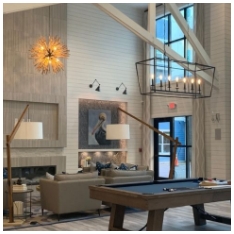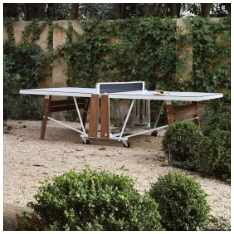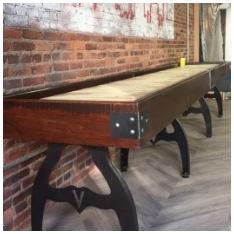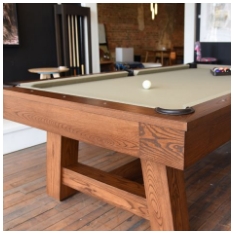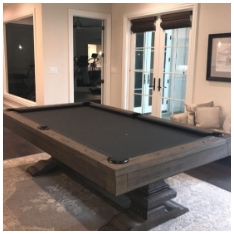Purchasing a pool table can be an exciting investment, whether for your home, office, or recreational space. Pool tables offer hours of entertainment, a chance to enhance your game, and a great way to socialize with family and friends. However, before making the purchase, there are several factors to consider to ensure that you choose the best pool table for your space, skill level, and budget. In this guide, we will discuss everything you need to know before buying a pool table.
Why Buy a Pool Table?
Pool tables are a great addition to any home or business, providing both fun and a touch of elegance. Whether you're an avid player or just want a casual game space, a pool table offers endless enjoyment. It's a versatile piece of furniture that can be a focal point of entertainment for social gatherings or a tool for honing your skills. Pool tables come in a variety of sizes, materials, and designs, making it easy to find the right fit for your needs.
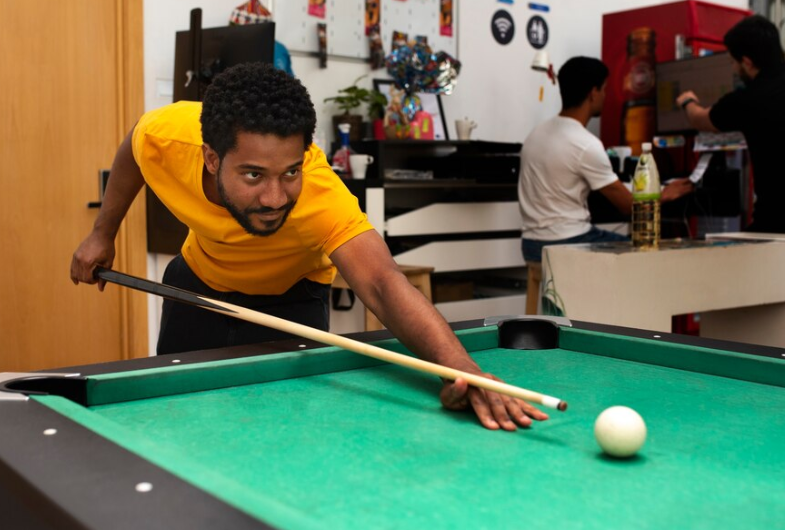
Types of Pool Tables
When considering a pool table purchase, it’s important to understand the different types available. There are various sizes, playing surfaces, and constructions, each suited for different playing styles and preferences. Here’s a breakdown of common types of pool tables:
1. Standard Pool Tables
Standard pool tables are usually 8 feet in length and are the most commonly used in homes and recreational spaces. These tables offer a good balance of playability for both casual and competitive players. If you want a traditional table, this is the best choice.
2. Tournament Pool Tables
If you're looking to practice or play pool at a higher level, a 9-foot tournament pool table might be the right choice. This larger table offers a more challenging game, with a larger playing area that requires greater skill and precision. These tables are often used in competitive play and professional settings.
3. Mini or Compact Pool Tables
For smaller spaces or casual play, mini or compact pool tables can be a great option. These tables are typically 6 or 7 feet in length and are designed for homes with limited space. They offer a fun alternative without the need for a large dedicated gaming room.
Factors to Consider Before Buying a Pool Table
Before you purchase a pool table, it’s important to think about several key factors to ensure you’re making the right choice for your space and needs. Below are some important considerations to keep in mind:
1. Space Availability
One of the first things to think about is where you will place your pool table. Pool tables require a significant amount of space, not only for the table itself but also for the players to comfortably move around it and take shots. To determine how much space you’ll need, consider the table size and the room dimensions. Ensure there is enough space for cue sticks to be used comfortably without hitting walls or furniture.
For reference, an 8-foot pool table typically needs a room size of at least 13 feet by 16 feet. Smaller tables require less space, but the general rule of thumb is to allow at least 5 feet of clearance around all sides of the table.
2. Material and Build Quality
Pool tables come in a variety of materials, and the quality of these materials will affect both the playability and longevity of the table. Look for tables with a solid slate playing surface, as slate provides the best ball roll and consistency. Three-piece slate tables are often recommended for the highest quality play. Also, consider the quality of the table frame and legs. Hardwood construction is ideal, as it provides durability and stability, while cheaper materials like MDF may not last as long.
3. Cloth and Cushion Quality
The cloth covering the surface of the pool table, often called the "felt," plays a significant role in how the balls roll. Woolen cloth is common on lower-end tables, while worsted cloth is preferred by professionals for its smooth and fast play. Additionally, ensure the rubber cushions (bumpers) around the table edges are of high quality, as they influence the ball's bounce and speed.
4. Budget
Your budget will determine the quality and features of the pool table you can purchase. Pool tables can range from a few hundred to several thousand dollars, depending on the material, size, and craftsmanship. Set a budget that balances your needs with the quality you're looking for. Remember, while more affordable options may seem appealing, investing in a higher-quality table will pay off in the long run with better durability and playing experience.
5. Style and Aesthetic
Pool tables come in a variety of styles, from classic wooden designs to modern, sleek options. Consider how the table will fit with your home’s décor. Choose a design that complements the room's aesthetic while also standing out as a focal piece. Many manufacturers offer customization options, allowing you to choose the finish, pocket design, and even the cloth color.
Maintaining Your Pool Table
Once you've chosen and set up your pool table, proper maintenance is essential to ensure it lasts for years. Here are a few maintenance tips for pool tables:
1. Clean the Cloth Regularly
Dust and chalk can accumulate on the table’s cloth, affecting how the balls roll. To keep the surface clean, brush the table regularly with a soft-bristle brush specifically designed for pool tables. Vacuuming the cloth gently can also help remove debris.
2. Avoid Excessive Weight
Pool tables are designed for playing, not sitting or leaning on. Avoid placing heavy objects on the table, as this can damage the slate or warp the table's frame. If possible, cover the table when it's not in use to prevent accidental spills or other damage.
3. Check the Cushions
Over time, the cushions on your pool table may wear out or lose their elasticity. This can affect how the balls bounce off the sides of the table. If you notice the cushions becoming less responsive, it may be time to have them replaced.
4. Level the Table
Ensuring your pool table remains level is essential for a fair and enjoyable game. As time passes, floors may shift, or the table may settle unevenly. Regularly check that the table is level using a spirit level tool, and adjust the legs if necessary.
Conclusion
Buying a pool table is a long-term investment that requires careful consideration of size, material, quality, and maintenance. By choosing the right type of pool table and understanding how to properly maintain it, you can enjoy years of entertainment and improve your game in the process. Whether you’re looking for a standard, tournament, or mini table, following these guidelines will help ensure that you make the best choice for your space and budget.

